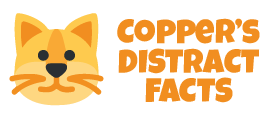Always Useful to Have a Spare Eyelid
That milky eyelid Copper watched is called a nictitating membrane. Barred owls have a top and bottom eyelid, and the nictitating membrane slides across the eye as a third eyelid. It helps to keep the eye clean and provide protection when swooping in for prey. Many birds and other creatures have nictitating membranes, including cats!

When you look, you see.
You’ve got to have a keen eye to catch a glimpse of the nictitating membrane sliding across a barred owl’s peepers, but you’ll be able to spy it with your little eye once you get yourself into a staring contest with a barred owl.
For some ideas on where you can lay eyes on a barred owl, check out Copper’s Distract Facts about a barred owl’s asymmetrical ears and mantling behavior.

Want to gaze a little deeper into the world of owls and owl eyes?
There are lots of great books and websites about owls. Below are just a few that you might enjoy!
Kids, remember to ask a parent, teacher, or librarian for help whenever you are looking for books or using the Internet. I always try to make sure to share kid-friendly books and resources, but websites are changing all the time, so always check with an adult first.
- The book Owls of the World: A Photographic Guide by Heimo Mikkola is like an owl overload with all sorts of information and photos of just about every owl you can think of, including barred owls. Check with your librarian to see if they can track down a copy for you, or ask your parents if they’d like to get a copy from your local bookstore. This link will help them find the book at a nearby bookstore: https://bookstorelink.com/9780228102366
- On The Owl Pages website, they have a great article all about owl eyes & vision, including a great photo of nictitating membranes sliding across the eyes of a young great horned owl. Check it out: https://www.owlpages.com/owls/articles.php?a=5
- While you are visiting The Owl Pages, get an eyeful of all the photos and facts they have to share about barred owls: https://www.owlpages.com/owls/species.php?s=1740
